
Increase Diversion and Recycling | End Waste Incineration | Implement County-Wide Food Scrap Composting
January 2022 Update on Montgomery County Zero Waste Progress
What is Zero Waste?
Zero Waste is the conservation of all resources by means of responsible production, consumption, reuse, and recovery of products, packaging, and materials without burning and with no discharges to land, water, or air that threaten the environment or human health.[1]
Zero Waste means that everything that’s produced has a useful end-life!
Achieving Zero Waste encourages steps to ensure that all kinds of waste are neither burned nor placed in landfills but rather, can be returned:
- to the soil, such as food waste and other organic material;
- into the economy, such as used household goods and furniture in good condition;
- to recyclers who produce other products from materials like paper, textiles, glass, metal, certain types plastics;
- to the manufacturers to make needed repairs or recycle them
- to entrepreneurs, crafts-persons, artists, and innovative companies to create new products or something of value to others.
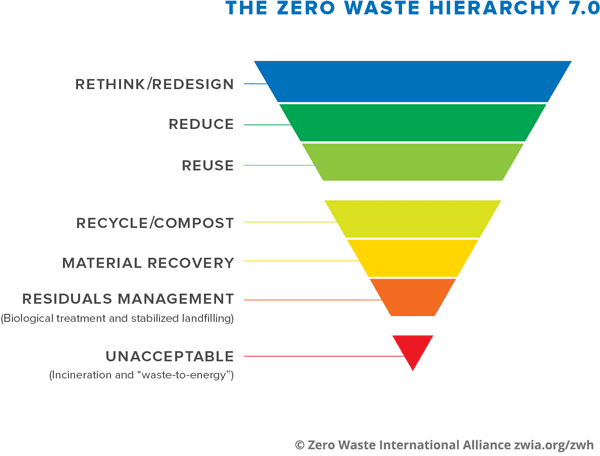
Zero Waste focuses on waste prevention, ensuring we have not just the physical infrastructure of waste collection and processing, but the social infrastructure: training, education, and, when needed -- enforcement. And, it stresses removing from the marketplace any products and packaging that cannot be reused or recycled.
What's In Montgomery County's Waste?
The single largest category of non-recycled waste is paper, followed by plastics, and food waste. Each year, county residents throw away more than 147,000 tons of food, food scraps and food paper that could otherwise be donated or composted.

How is Montgomery County Faring in Reducing Waste?
The good news is that Montgomery County has a relatively high “diversion” rate of well over 50 percent because our robust waste management and recycling system has been in place since the 1990s. Diversion means that the waste was not sent to the incinerator but was recycled or otherwise reused.
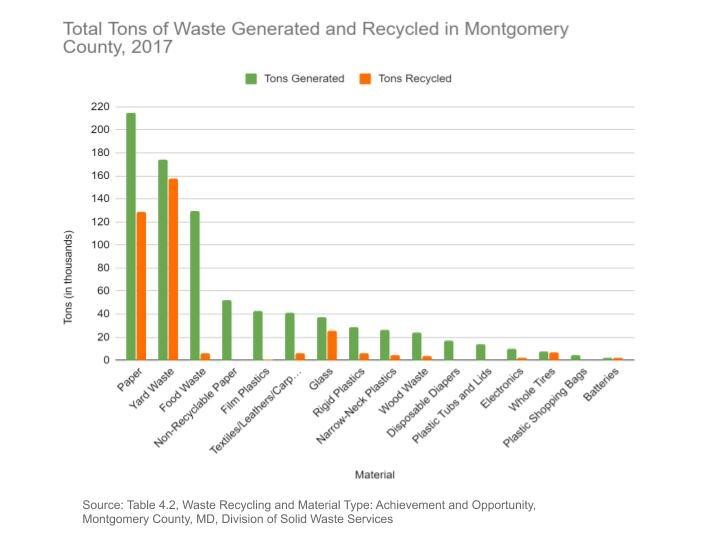
How Can Our County Do a Better Job of Reducing Waste?
We can do better and get more out of the waste stream!
The single-family, multi-family and non-residential sector (which are office buildings, restaurants, hospitals, and government agencies) have opportunities for improving recycling rates.
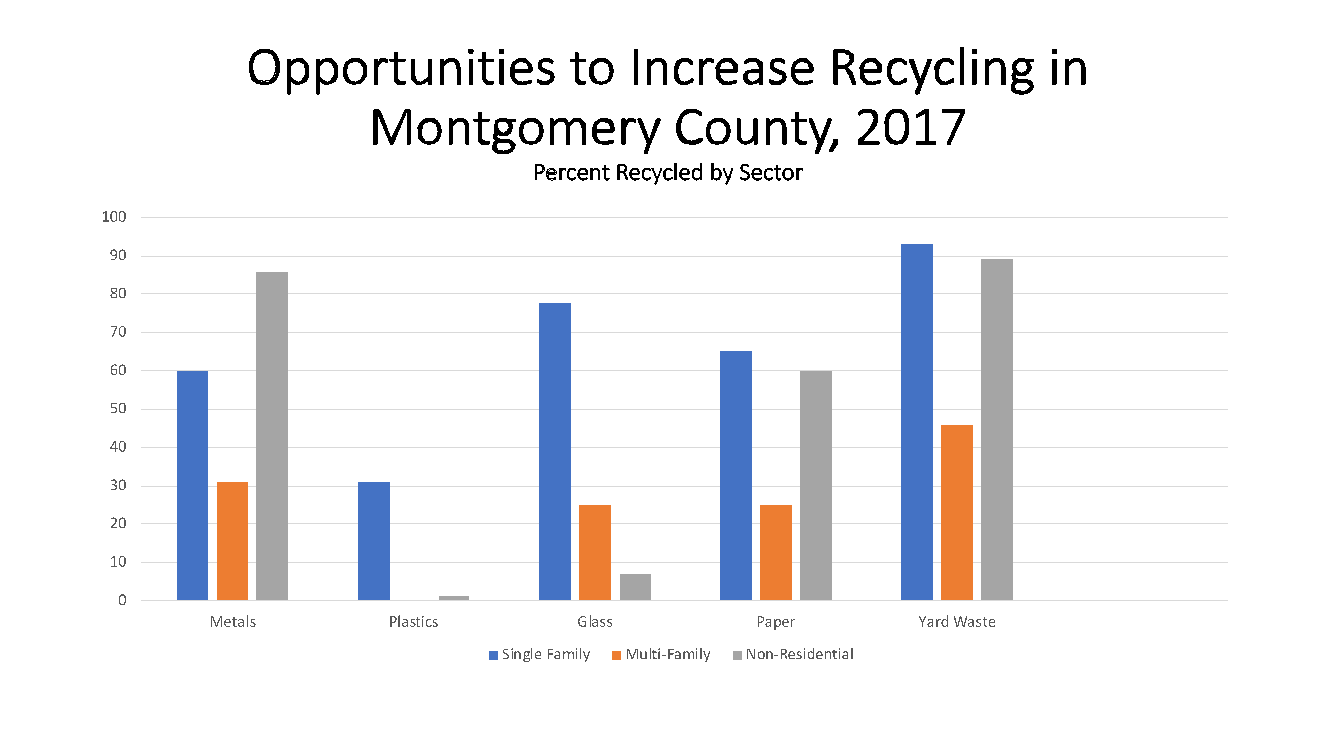
Source: Table 4.2, Waste Recycling by Material Type: Achievement and Opportunity, Montgomery County, MD, Division of Solid Waste Services.
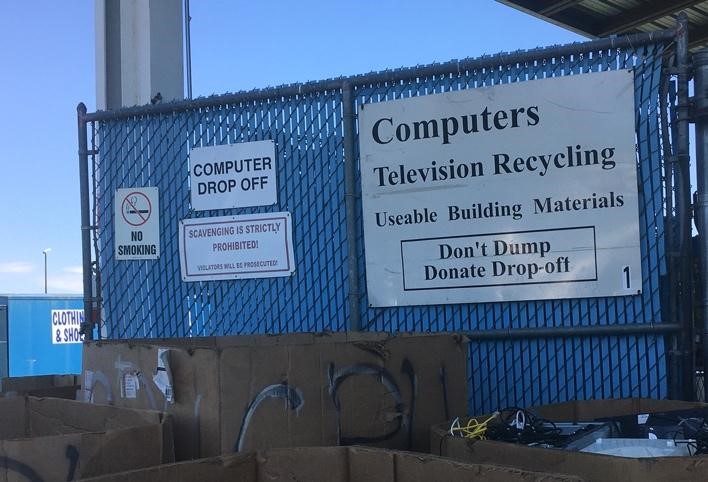

Montgomery County has made a good start by purchasing a truck that is collecting food waste from some of the largest food waste generators in the county!
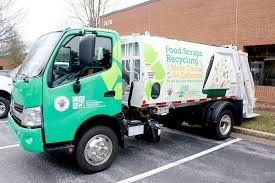
The bad news is that we are “stuck” and we still send 477,000 tons of residential trash annually to be burned in an incinerator in Dickerson, located in the 93,000-acre agricultural reserve. The model jurisdictions that are recycling more--King County, Washington; San Francisco, and Toronto--have one major difference: they collect food scraps and other organics.
The County should set a higher goal of waste diversion of 70-80 percent, by getting all organics such as food scraps, more paper, plastics, clothing, metals, and other materials out of the waste stream, enabling it to reduce waste to the extent that we can close down the incinerator.
Click here to read Sierra Club Montgomery County Group’s full list of recommendations for achieving much higher levels of waste diversion from incineration or landfilling.
Sierra Club Fights Plastic Packaging and Waste
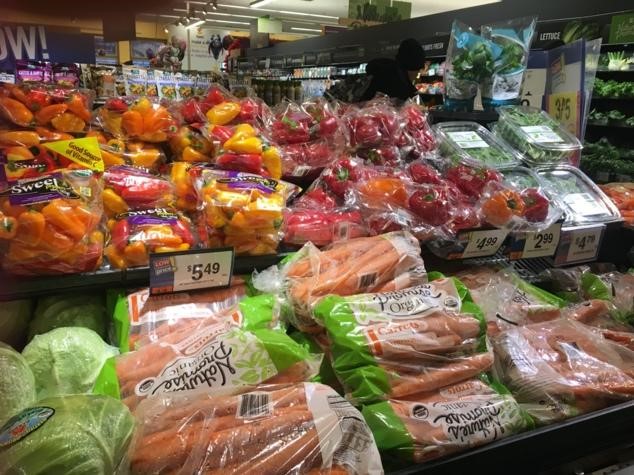
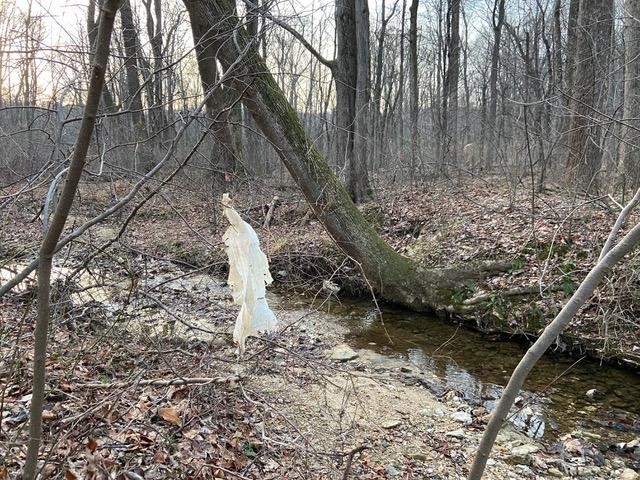
The world is facing a plastic pollution crisis, impacting climate change, the natural environment, and human health. Since it first came into widespread use after WWII, more than 10 billion tons of plastic has been produced. An estimated 30% is currently in use. Of the plastic that has been discarded, only about 9% is recycled and 12% incinerated. The rest – an estimated 60% of all plastic ever produced – has been landfilled or left in the natural environment. About 40% of current annual plastic production is for packaging and single-use items (bags, bottles, straws, bags), used for only minutes but lasting in the environment for centuries or more.
Plastic waste is a growing problem in Montgomery County. “Styrofoam” was banned in the county and so were plastic utensils and straws but we can’t expect restaurants to purchase compostable alternatives until we have a suitable location within the county for their composting.
The County earns revenues by selling paper, aluminum, glass, and recyclable plastics 1-5 and 7. But plastic still makes up 16 percent of the waste that’s not recycled. Our tax dollars pay for a waste system that needs to be modernized for the 21st Century.
Sierra Club calls on the County Council to:
- ban the sale of non-recyclable products and packaging made from #6 plastic;
- require that straws in restaurants be provided only upon request;
- give the County Executive authority to ban other types of non-recyclable plastic in the future.
- develop an in-county facility for composting food scraps and compostable service-ware.
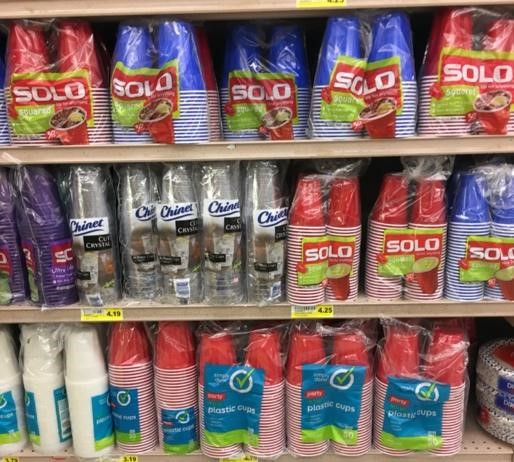
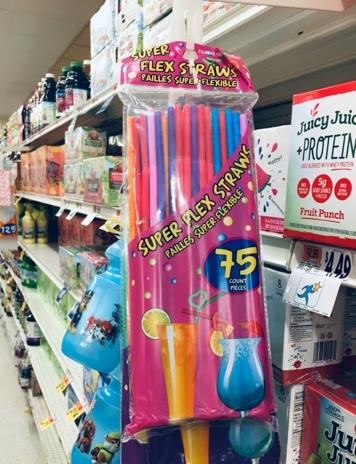
Let’s ban sales of #6 plastic containers and provide straws on request only.
Read Sierra Club Presentation on Plastic Waste
Sierra Club Study Shows Effectiveness of Montgomery County's Fee on Plastic and Paper Bags, Calls for Full Ban on Single-Use Disposable Bags
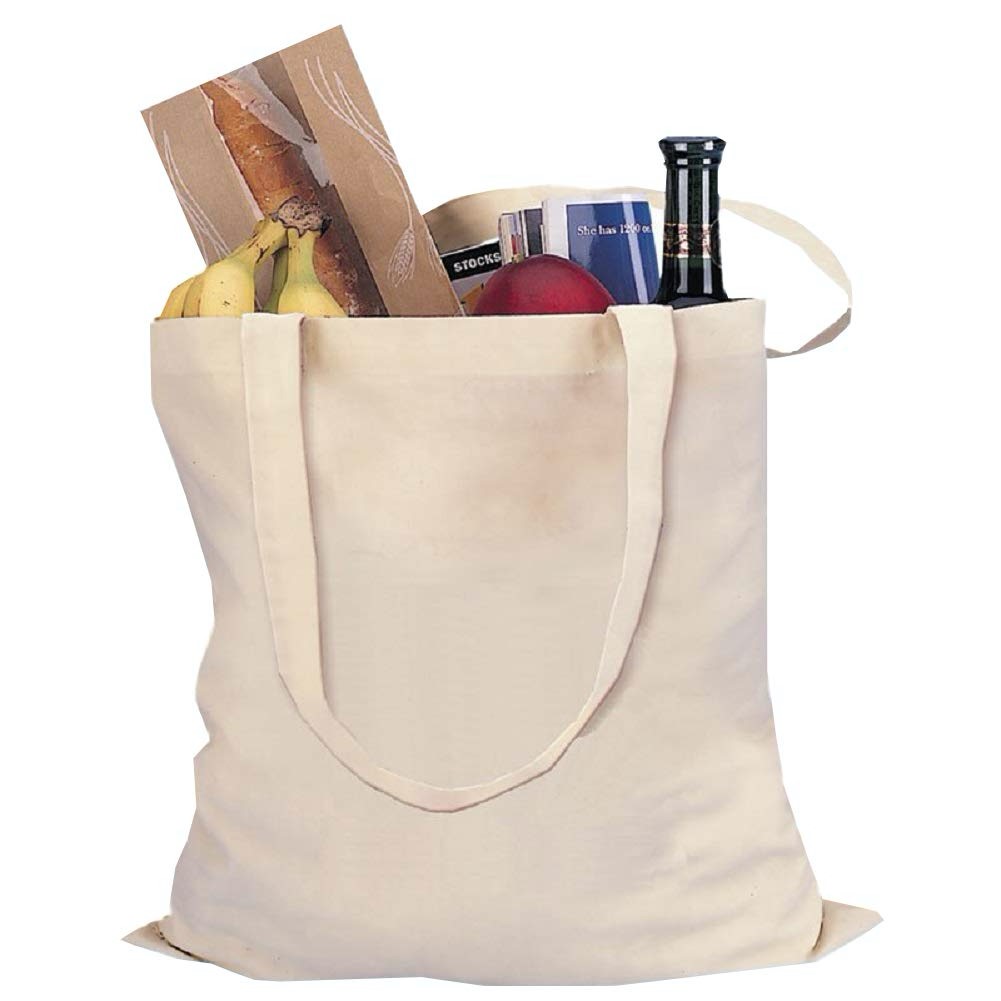 Sierra Club volunteers conducted a survey of 9,000+ shoppers at 57 grocery stores across the county. We found that almost 60 percent of shoppers were using reusable bags or no bag at all. The bag fee is working but more education is needed to bring the numbers up.
Sierra Club volunteers conducted a survey of 9,000+ shoppers at 57 grocery stores across the county. We found that almost 60 percent of shoppers were using reusable bags or no bag at all. The bag fee is working but more education is needed to bring the numbers up.
What Can You Do to Reduce Waste?
- Refuse to purchase products packaged in plastic. Before you order something on-line, ask the seller what kind of packaging is used.
- Purchase food in bulk and bring your own reusable produce bags and containers. Many natural food stores allow you to bring your own containers. Don’t put your produce in plastic bags.
- Refuse single-use plastic items. Carry reusable utensils, straws, coffee holders, and water bottles. If you order carryout food, make sure you tell them to “hold the plastics.”
- Carry your reusable bags with you when shopping.
- Compost your food scraps, coffee grounds, egg shells and plant matter. Learn how to compost here. If you don’t want to compost your own or cannot, subscribe to a curbside collection service like Compost Crew.
- Use compost for you garden and landscape! To improve the health of the soil!
- Avoid wasting food, buy only what you need and organize your refrigerator to use the oldest produce first.
- Donate unwanted items in good condition and cut back on unnecessary purchases.
- Read the Sierra Club National Zero Waste Policy
- Check out these great websites: Story of Stuff, ZeroWasteChef.com, BreakFreeFromPlastic.com, BeyondPlastics.com.
- Follow the latest waste reduction developments around the country: WasteDive.com, Waste360.com. BioCycle.com.
To learn how you can get involved with Sierra Club, contact Amy Maron, Zero Waste Lead, at amy.maron@mdsierra.org
To learn about Sierra Club Maryland Chapter’s efforts toward zero waste, click here: https://www.sierraclub.org/maryland/zero-waste
2021 Maryland Legislation
Several bills related to zero waste will be taken up in the Maryland General Assembly's 2021 Legislative Session. These bills are summarized in this attached document.
[1] Zero Waste International Alliance definition of Zero Waste.